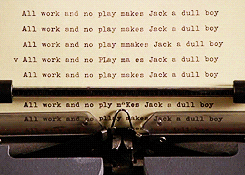Musing Mage
Pondering D&D stuff
Well, for my own part, my regular game ended in a bit of a TPK last year, and due to the pandemic we went on hiatus and I ended up with a year between games... during that time I codified my house rules into an organized document; reread the books; and started laying out adventure threads.
I also rolled out the battlemat and made a team of characters to run through a random dungeon generator. That was beneficial as I realized just how rusty my knowledge of the rules was, and also gave me a practical refresher of both BTB rules and my House Rules. It was also oddly satisfying... and I ended up with 3 multi level dungeons to lay at the feet of my real players.
As our return to real play loomed, I laid out about a dozen adventure paths, and fleshed them out, came up with a stack of rumours the players could learn about said adventure paths, and let them figure out what they wanted to do. Now that they have made choices, the trajectory is a little easier to predict and I can prep more specific details tied in with what has been established.
Dammit! Talking about it here is makes me wish game-day were sooner!
I also rolled out the battlemat and made a team of characters to run through a random dungeon generator. That was beneficial as I realized just how rusty my knowledge of the rules was, and also gave me a practical refresher of both BTB rules and my House Rules. It was also oddly satisfying... and I ended up with 3 multi level dungeons to lay at the feet of my real players.
As our return to real play loomed, I laid out about a dozen adventure paths, and fleshed them out, came up with a stack of rumours the players could learn about said adventure paths, and let them figure out what they wanted to do. Now that they have made choices, the trajectory is a little easier to predict and I can prep more specific details tied in with what has been established.
Dammit! Talking about it here is makes me wish game-day were sooner!



